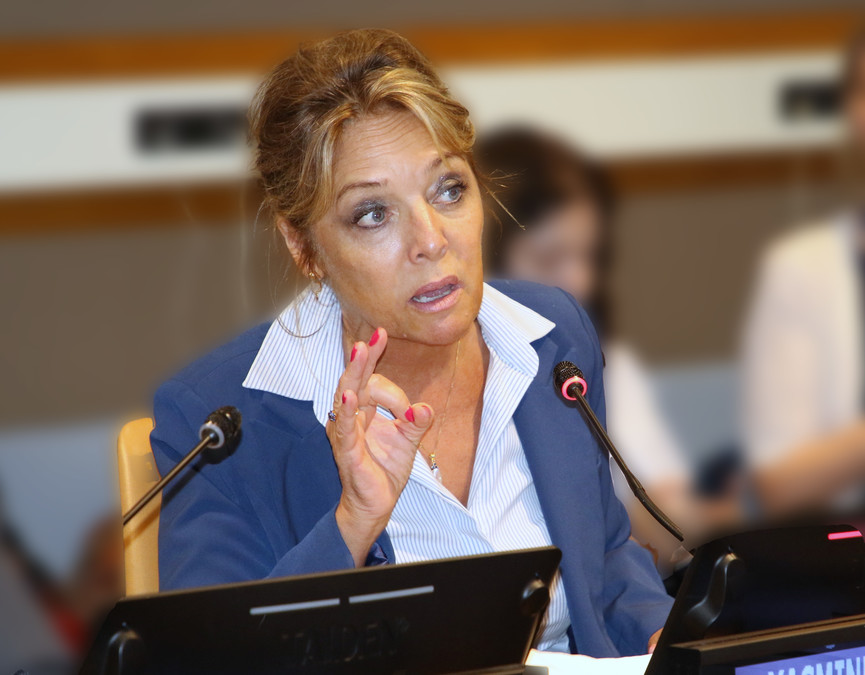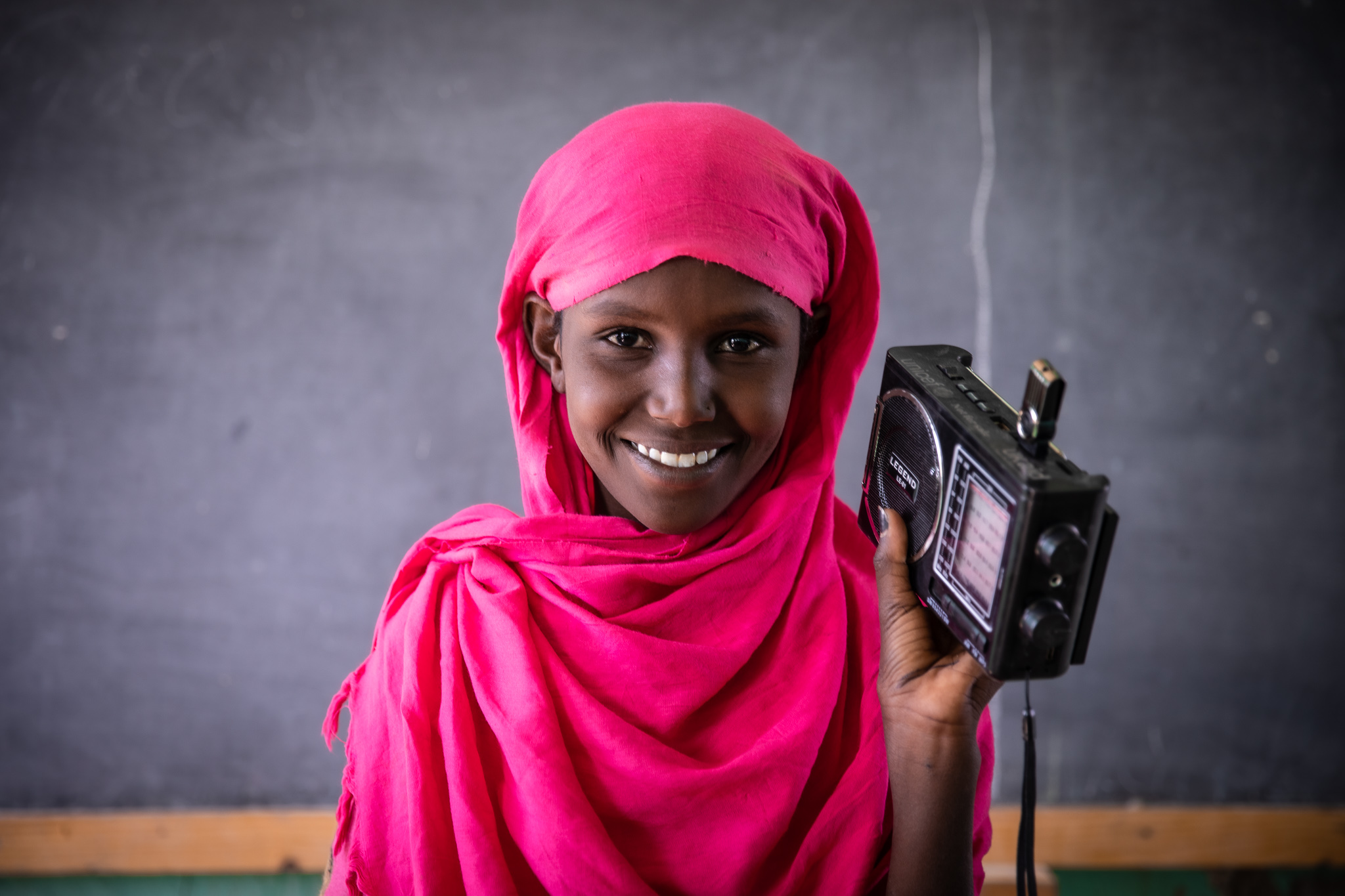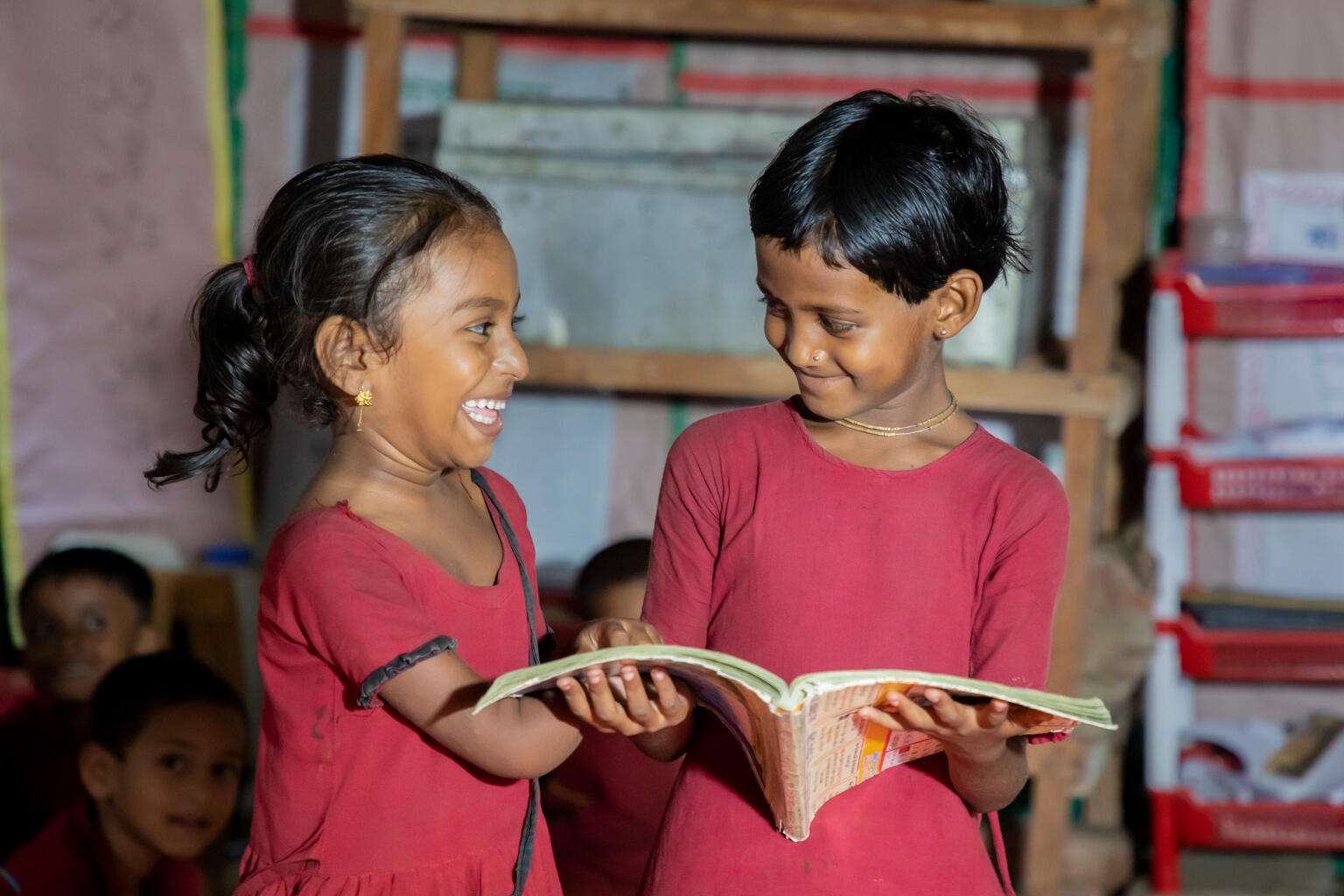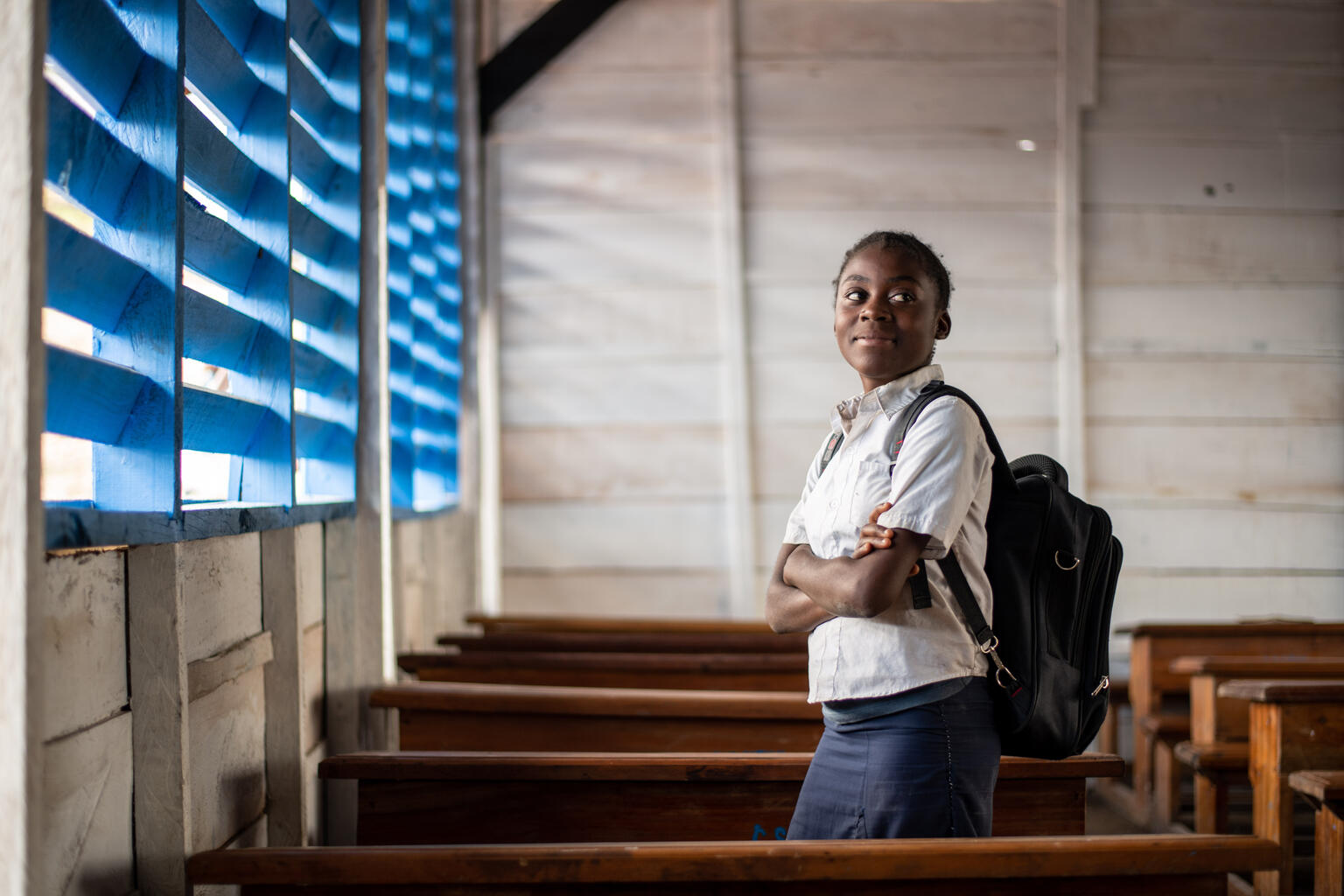Freedom, Equality and Justice Lead to Peace

Human Rights Day Statement by Education Cannot Wait Executive Director Yasmine Sherif
Today we mark a milestone in history: the 75th anniversary of the Universal Declaration of Human Rights. As people around the world commemorate Human Rights Day, we must also deeply reflect on the meaning of this historic document and what it takes to achieve peace in the world.
The inspiring preamble of the Universal Declaration is not the work of an indifferent or greedy mindset. It was crafted by those able to delve into their hearts and souls to authentically express the imperatives for peaceful co-existence in the world.
Inspired by the East and West, North and South, Eleanor Roosevelt, together with the French jurist, Rene Cassin, were the driving force behind the Universal Declaration for Human Rights, adopted by the United Nations General Assembly in 1948. With the Universal Declaration of Human Rights, and successive legal human rights conventions, one can safely say that these rights were not proclaimed to find consensus around the lowest common denominator. Rather, the Declaration was created to inspire and mold consensus around the highest of human values: the goal was to achieve peace.
The preamble to the Universal Declaration of Human Rights reads: ‘Whereas recognition of the inherent dignity and the equal and inalienable rights of all members of the human family is the foundation of freedom, justice and peace in the world.’ Yet, almost a century later, these universal rights are largely not respected, nor equally applied. As the essence of these values and laws are eroded and ignored, is it any wonder that there are more wars, conflicts and widespread injustices, resulting in more refugees, internal displacement and immense human suffering?
This unspeakable, yet preventable, human suffering comes about because we have departed from our highest of human values through many small and big decisions. These are decisions leading to actions severely undermining the foundation for peaceful co-existence in the world. Haven’t freedom, equality and justice for all members of the human family been compromised or disregarded enough?
The path to peace is not complicated. The answer lies in the preamble to the Universal Declaration of Human Rights and all the rights enshrined in the Declaration.
The right to an inclusive, sustainable quality education is a foundational right. A continued quality education empowers every child and adolescent to claim all other rights. The chance of success is even greater provided that these children and adolescents live in an environment conducive to all other human rights – also for their families, communities and countries.
This is not complicated. It only demands that we take courageous decisions in every role we find ourselves – and deploy meaningful action – to begin materializing the Universal Declaration of Human Rights for all members of the human family.
It would be such a purposeful way of moving forward. It would be a profound legacy to leave behind for the young generation and for generations to come. All we need to do is to act as our conscience dictates. Or, as the co-author of the Universal Declaration of Human Rights, Eleanor Roosevelt, rhetorically asked: “When will our conscience grow so tender that we will act to prevent human misery rather than avenge it.”




